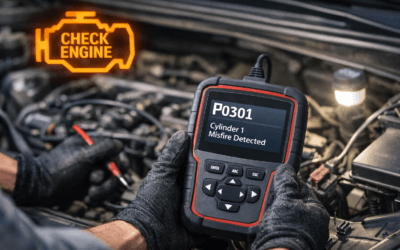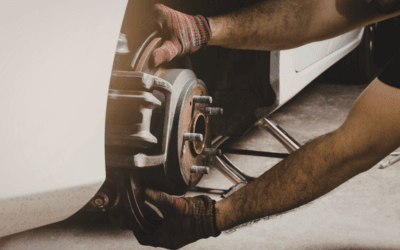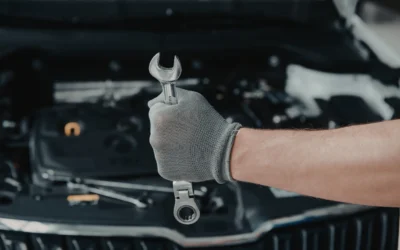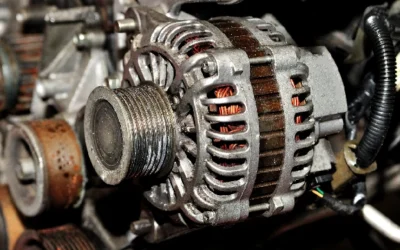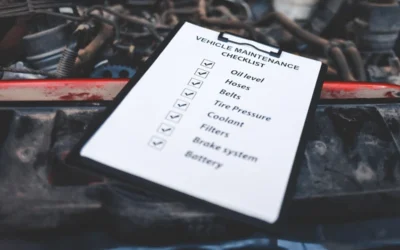California’s wildfire season has become a yearly event that residents must prepare for. The fires not only threaten homes and lives but also affect the air quality across vast regions. This has far-reaching implications for your vehicle, particularly your cabin air filter, which is designed to protect you from pollutants. When ash and smoke fill the air, your cabin air filter works overtime to keep the air inside your car clean. But how effective is it during wildfire season, and what steps can you take to protect it?
This article explores how California fires affect your cabin air filter and provides actionable tips to ensure that your vehicle’s air quality remains safe and clean.
The Role of Your Cabin Air Filter
Your cabin air filter is a crucial component of your vehicle’s HVAC (Heating, Ventilation, and Air Conditioning) system. It filters out dust, pollen, and other airborne contaminants before they can enter the cabin of your car. During wildfire season, the filter takes on an even more critical role by trapping ash, smoke particles, and other harmful pollutants, helping to protect your health as you drive.
While your cabin air filter is designed to handle everyday pollutants, the extreme conditions created by wildfires can overwhelm it. Ash and smoke particles are particularly fine, which means they can clog up the filter much faster than regular dirt or pollen. A clogged filter not only reduces the air quality inside your car but also forces your HVAC system to work harder, which can lead to decreased efficiency and potential mechanical issues.
The Impact of Wildfire Smoke on Your Vehicle
Wildfire smoke contains a complex mixture of gases and fine particles produced when wood and other organic materials burn. These particles can penetrate deep into your lungs and are associated with a range of health problems, including respiratory issues and cardiovascular disease. Inside your vehicle, a compromised cabin air filter allows these dangerous particles to enter the cabin, putting you and your passengers at risk.
Ash from wildfires is another concern. These tiny particles can enter your vehicle’s ventilation system and accumulate on the cabin air filter. Over time, the ash can mix with moisture, creating a thick, sticky residue that further reduces the filter’s effectiveness. This not only impacts air quality but can also lead to unpleasant odors inside the car.
Signs Your Cabin Air Filter Needs Attention
Given the importance of the cabin air filter during wildfire season, it’s essential to know when it needs attention. Here are some signs that your filter might be clogged or damaged:
- Reduced Airflow
If you notice that the airflow from your car’s vents is weaker than usual, it could be a sign that the cabin air filter is clogged with ash and smoke particles. - Unpleasant Odors
A musty or smoky smell inside your car can indicate that the filter is saturated with pollutants and needs to be replaced. - Increased Allergy Symptoms
If you or your passengers experience more frequent allergy symptoms while driving, such as sneezing, coughing, or itchy eyes, a dirty cabin air filter could be to blame. - Fogged Windows
A clogged filter can affect the HVAC system’s ability to regulate humidity, leading to fogged windows that are difficult to clear.
Steps to Protect Your Cabin Air Filter During Wildfire Season
While it’s impossible to avoid the effects of wildfire smoke entirely, there are several steps you can take to protect your cabin air filter and ensure that the air inside your vehicle remains as clean as possible.
- Replace Your Cabin Air Filter RegularlyDuring wildfire season, it’s a good idea to replace your cabin air filter more frequently than usual. While most manufacturers recommend changing the filter every 12,000 to 15,000 miles, you may need to do so more often if you’re driving in areas affected by wildfires. Consider checking your filter monthly during peak fire season and replacing it if it appears dirty or clogged.
- Use a High-Quality FilterNot all cabin air filters are created equal. To maximize your protection against ash and smoke, opt for a high-quality filter designed to trap smaller particles. HEPA (High-Efficiency Particulate Air) filters are a great option, as they can capture particles as small as 0.3 microns, including many of the fine particles found in wildfire smoke.
- Utilize Your Recirculation ModeWhen driving in smoky conditions, switch your car’s HVAC system to recirculation mode. This prevents outside air from entering the cabin and forces the system to recirculate the air already inside. While this won’t eliminate all pollutants, it can significantly reduce the amount of ash and smoke entering your vehicle.
- Keep Windows and Sunroofs ClosedIt might be tempting to open your windows for fresh air, especially if your car feels stuffy. However, doing so during wildfire season can allow ash and smoke to enter your vehicle more easily. Keep your windows and sunroofs closed, and rely on your HVAC system to manage airflow.
- Park Indoors When PossibleParking your car in a garage or other enclosed space can help protect it from falling ash and prevent ash from accumulating on your cabin air filter. If indoor parking isn’t an option, consider using a car cover to shield your vehicle from the elements.
- Monitor Air Quality ReportsDuring wildfire season, local air quality can change rapidly. Stay informed by checking air quality reports regularly and avoiding driving in areas where smoke levels are particularly high. If you must drive, try to limit your trips and avoid peak smoke times, such as early morning or late evening when smoke tends to settle.
- Consider a Professional InspectionIf you’re concerned about the condition of your cabin air filter or your vehicle’s overall air quality, consider having your HVAC system inspected by a professional. They can assess the filter’s condition, check for any damage or clogs, and recommend the best course of action to keep your vehicle’s air clean.
Protect Your Cabin Air Filter with Yorba Linda Auto Service!
California’s wildfire season presents significant challenges for residents, including the need to protect your vehicle from ash and smoke. By taking proactive steps to care for your cabin air filter, you can help ensure that the air inside your car remains clean and safe, even in the face of extreme conditions. Regular filter replacements, the use of high-quality filters, and strategic driving habits can all contribute to better air quality in your vehicle. Stay vigilant, stay informed, and take action to protect yourself and your passengers during wildfire season.
We don’t want the health of your vehicle compromised by the smoke and ash. To ensure your cabin is performing in tip-top shape, we encourage you to bring your vehicle to our facility for an inspection and cabin air filter replacement, if needed. Schedule an appointment for service at Yorba Linda Auto Service or call us if you have questions about your cabin air filter.



